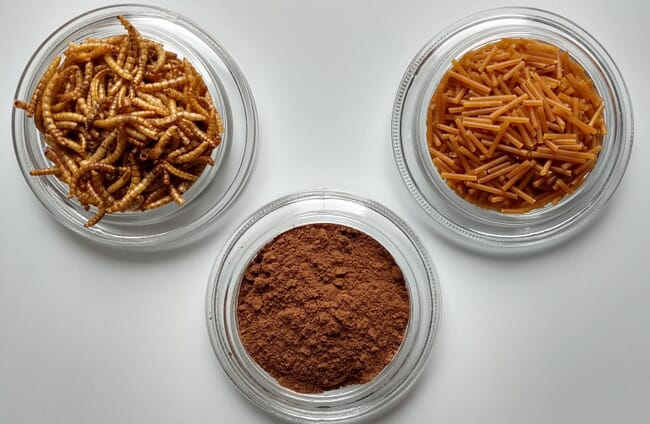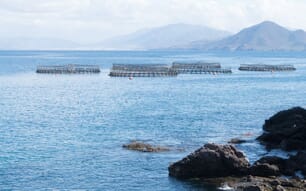
The initiative is supported by the U.S. Department of Agriculture’s (USDA) Agricultural Research Service (ARS) through its 1890 Faculty Research Sabbatical Program. This programme offers faculty members at 1890 land-grant universities the opportunity to conduct collaborative research with ARS scientists.
Dr. Lochmann, in partnership with Dr. Carl Webster, an ARS fish nutritionist, is exploring the use of novel plant and insect-based feed ingredients to enhance the sustainable production of hybrid striped bass. Their research is focused on assessing the growth performance, body composition, gut histology, and gene expression of sunshine bass when fed diets incorporating insect meals and oils. The research is being conducted at the H.K. Dupree Stuttgart National Aquaculture Research Center.
“Through carefully designed and conducted feeding trials with hybrid striped bass, the overall objective of the project is to reduce – or eliminate – the use of marine fish meal in prepared diets for this species,” Dr. Webster said. “This will contribute to the sustainable growth of the aquaculture industry, while optimising profit potential for domestic producers.”
Hybrid striped bass are a significant food fish species in the United States, with over 98 percent of production occurring in the mid-Atlantic, southern, and western regions. The industry has seen substantial growth, with food fish production rising by 62 percent from 2013 to 2017 and a further 16 percent in 2018, reaching an estimated value of 56 million dollars.
Dr. Lochmann noted that the continued expansion of the domestic hybrid striped bass industry hinges on improving efficiency to reduce production costs and increase profitability. However, the industry faces challenges, particularly the need for nutritious and environmentally sustainable diets that support intensified food fish production systems.
“Marine fish meal is the most desired ingredient in aquaculture diets due to its palatability, high protein and amino acid content and quality, and essential fatty acids,” Dr. Lochmann explained. “However, it is also the most expensive macro-ingredient in an aquaculture diet. Thus, reliance on marine fish meal in diets for fish and crustaceans is problematic since wild marine fish stocks are static – or could decline – due to overfishing, pollution and climate change. This has forced the search for alternative protein sources.”
One promising alternative being evaluated in this project is insect meal. Dr. Lochmann highlighted the growing interest in using insect meals across various animal feeds, including those for food animals, pets, and even humans. Insects provide high-quality protein and have demonstrated health benefits for animals. For the aquaculture industry, insect meals could offer a more sustainable protein source than fish meal, as insects require minimal land and water for production, can convert organic waste into valuable animal protein, and have a low environmental impact.
“Insects contain substantial amounts of high-quality protein, with a balanced amino acid profile that is superior to soybean meal and comparable to fish meal in some cases,” said Dr. Webster. “The European Commission has already approved the use of insect meals in aquaculture feeds, but wider adoption will depend on scaling up production to reduce costs.”
The research at UAPB is evaluating the potential of full-fat black soldier fly larval meal (BSFL) as a fish meal replacement in hybrid striped bass diets. Six diets were formulated with 40 percent protein and 11 percent lipid content, with varying levels of BSFL and fish meal. The feeding trials, conducted over 12 weeks, are designed to assess the growth and survival of juvenile bass under these dietary conditions.
“Preliminary results suggest that BSFL meal may meet the protein and amino acid requirements of hybrid striped bass when diets are formulated based on digestible nutrients,” said Dr. Webster. “This could have a significant impact on the field of aquatic animal nutrition by promoting more environmentally sustainable protein sources for commercial aquaculture.”
Dr. Lochmann highlighted the importance of this research in the context of global food security. With the world’s population expected to increase by 2 billion by 2050, there is a pressing need to scale up food production, and aquaculture is well-positioned to meet this demand by providing a reliable source of protein.
“Aquaculture has the potential to provide people their protein into the future,” she said. “It is important to continue conducting research on hybrid striped bass – a species of domestic importance – that could assist in providing protein for the world’s growing population.”




